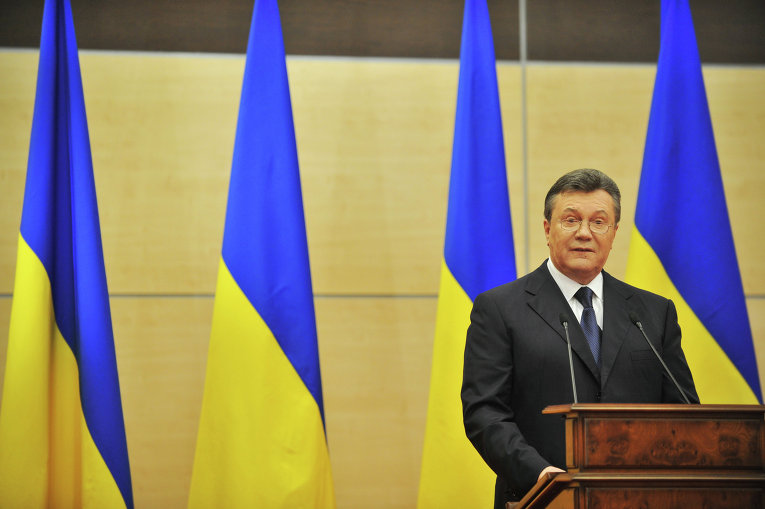MOSCOW, November 25 (RAPSI) – The questioning of Ukraine’s former president Victor Yanukovych in an investigation into killing of demonstrators during the protests in central Kiev in 2014 was postponed until November 28.
The case against 'Berkut' riot police officers is pending in the Svyatoshinsky District Court of Kiev. Yanukovych who has been living in Russia since escaping Ukraine agreed to testify by video-link from from the Rostov Regional Court.
The political crisis erupted in Ukraine in late November 2013 after the government announced that it had halted the country’s association with the European Union. Protests, called Euromaidan, swept across the country and led to violent clashes between armed activists and law enforcement officers in late 2013 and early 2014.
Fighting between radical anti-government protesters and police culminated in mass riots on February 18, 2014.
On February 20, fire was opened on protestors. Over 100 people died those days on both sides, according to RIA Novosti.
Ukraine authorities claim 'Berkut' officers to be blamed for the shootings.
Russia says that militants of Right Sector, a far-right Ukrainian group banned in Russia, may have been behind the attack.
Ukraine went through a regime change on February 22, when President Viktor Yanukovych fled the country and Euromaidan activists rose to power in Kiev.
In early 2015, it was reported that the Ukrainian Prosecutor General’s Office brought charges against Yanukovych in absentia and addressed Russia with a request to extradite the former president. Yanukovych is suspected of organizing a criminal group, abuse of power, embezzling state property and other offenses. The Russian Minister of Justice then claimed he had not received any documents on extraditing Yanukovych to Kiev.
On June 6, Russia declined to extradite Yanukovych, the Prosecutor General’s Office’s spokesman Alexander Kurennoy told journalists.
The motion for provisional arrest and detention of Yanukovych filed by Ukraine was considered and dismissed in accordance with Article 3 (Political offences) of the 1957 European Convention on Extradition, Kurennoy said. Ukrainian authorities were informed about this decision, he added.



